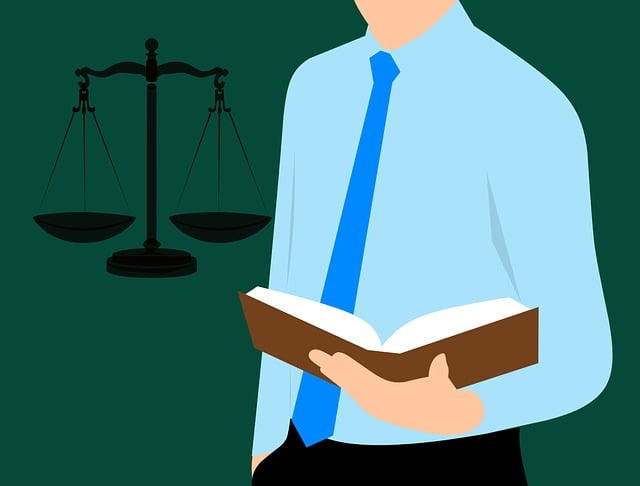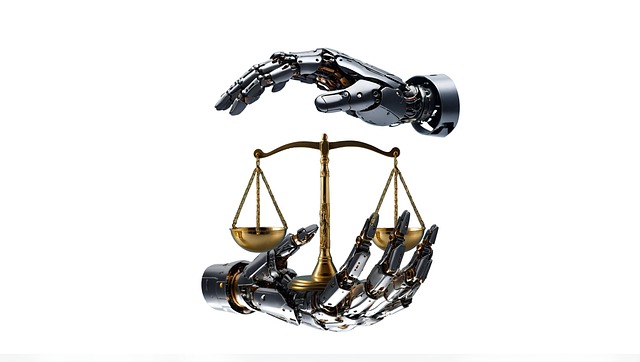Antitrust laws regulate competition and market behavior to foster innovation, lower prices, and improve goods/services. Businesses must navigate these regulations carefully in partnerships, avoiding violations like collusion or monopolies that can lead to costly civil litigation for business partnership issues (Civil Litigation for Business Partnership Issues). Legal experts analyze joint ventures, alliances, and mergers to detect anti-competitive practices. Civil litigation resolves antitrust disputes, enabling harmed parties to seek damages and promoting accountability within philanthropy and politics. Businesses defend against charges with strategic legal strategies, negotiations, and settlements, while facing potential penalties, reputational damage, and long-term market effects. Specialized legal teams handle complex cases.
Antitrust violation cases are a significant aspect of modern business law, with far-reaching consequences for companies and consumers alike. This article delves into the intricate world of antitrust regulations, offering a comprehensive guide for businesses. We explore key areas such as understanding antitrust laws, identifying potential violations in partnerships, and the power of civil litigation in dispute resolution. Additionally, we uncover strategic defenses against charges and the impacts of proven violations, providing essential insights for navigating these complex legal issues, especially through effective civil litigation for business partnership issues.
- Understanding Antitrust Laws and Their Purpose
- Identifying Potential Violations in Business Partnerships
- The Role of Civil Litigation in Resolving Antitrust Disputes
- Legal Strategies for Defending Against Antitrust Charges
- Impact and Consequences of Proven Antitrust Violations
Understanding Antitrust Laws and Their Purpose

Antitrust laws are designed to promote fair competition and prevent businesses from abusing their market power. These laws aim to ensure that markets function efficiently, fostering innovation, lower prices, and better quality goods and services. Understanding antitrust regulations is crucial for businesses to avoid potential legal pitfalls, especially when it comes to complex business partnerships. Civil litigation for business partnership issues often arises due to alleged violations of these laws, where companies may collude or form monopolies that hinder competition.
The purpose of antitrust legislation is not only to protect consumers but also to maintain the integrity of the free market system. High-stakes cases involving antitrust violations can have significant implications, as winning challenging defense verdicts could set precedents for future legal battles within the philanthropic and political communities. Businesses must navigate these regulations carefully to ensure compliance and mitigate potential risks in all aspects of their partnerships.
Identifying Potential Violations in Business Partnerships

Identifying potential antitrust violations within business partnerships is a complex task that requires meticulous scrutiny and legal expertise. Companies engaging in joint ventures, strategic alliances, or mergers should be particularly vigilant to avoid anti-competitive practices. These partnerships can inadvertently facilitate price-fixing, market division, or the suppression of competition, all of which are prohibited under antitrust laws. By analyzing transaction structures, market behavior, and communication between partners, legal professionals can uncover red flags indicative of non-compliance.
Early detection is crucial in high-stakes cases involving business partnership issues, as it allows for proactive measures to mitigate potential civil litigation. In the event that a violation is discovered, businesses must promptly assess their options, including negotiating resolutions or preparing for jury trials across the country. The implications of such violations can be far-reaching, leading to significant financial penalties and reputational damage, making it essential for companies to foster a culture of compliance and transparency to avoid these challenges.
The Role of Civil Litigation in Resolving Antitrust Disputes

Civil litigation plays a pivotal role in resolving antitrust disputes, offering an alternative to criminal proceedings for business partnership issues. This process involves private parties bringing legal action against alleged violators, allowing for the enforcement of antitrust laws and the recovery of damages. Unlike criminal cases that focus on penalization and punishment, civil litigation aims to redress harm done to affected businesses or consumers.
The use of civil litigation complements all stages of the investigative and enforcement process by providing a mechanism for individuals and entities to seek remedies when they believe their rights have been infringed upon. It also fosters accountability within the philanthropic and political communities by ensuring that business practices adhere to antitrust guidelines. Moreover, successful civil lawsuits can help deter future violations, as businesses strive to avoid indictment and potential financial penalties.
Legal Strategies for Defending Against Antitrust Charges

When facing antitrust charges, businesses often turn to robust legal strategies to defend themselves. One common approach is to scrutinize and challenge the evidence presented by the plaintiff or regulatory body. This involves a detailed examination of market dynamics, competitive interactions, and business practices to demonstrate compliance with antitrust laws. Legal teams may also leverage expert witnesses and economic analyses to provide counterarguments, showing that the alleged conduct did not substantially harm competition.
Moreover, businesses can employ strategic negotiations and settlement talks to achieve extraordinary results. Skilled attorneys can help clients navigate complex legal landscapes, ensuring they present a compelling defense. By focusing on specific market characteristics and offering persuasive interpretations of events, successful defenses have led to winning challenging defense verdicts for his clients. This not only protects business interests but also fosters a fair and competitive marketplace.
Impact and Consequences of Proven Antitrust Violations

Proven antitrust violations can have significant impacts and far-reaching consequences for businesses involved. These cases often lead to substantial financial penalties, with fines reaching into millions or even billions of dollars, depending on the severity of the infraction. The affected company’s reputation may also suffer, damaging its standing in the industry and impacting future business relationships. Additionally, there can be long-term effects on market competition, consumer choices, and prices, as antitrust laws aim to preserve a fair and open marketplace.
Civil litigation for business partnership issues related to antitrust violations has become a complex field, with many high-profile cases attracting nationwide attention. This has led to increased scrutiny from both legal experts and the general public. As a result, businesses must carefully navigate their operations to avoid potential pitfalls, ensuring compliance with white-collar defense strategies that safeguard against such legal challenges. Across the country, legal teams specialize in handling these complex cases, offering expertise to corporate and individual clients facing antitrust allegations.
In navigating complex business partnerships, understanding antitrust laws is paramount to avoid potential violations. By identifying red flags and employing strategic legal defenses, businesses can mitigate risks effectively. While civil litigation serves as a crucial tool in resolving disputes, the consequences of proven antitrust violations cannot be overlooked, emphasizing the need for proactive compliance measures. For businesses seeking to safeguard their practices, staying informed and adapting strategies are key to navigating this evolving regulatory landscape, particularly through effective civil litigation for business partnership issues.






